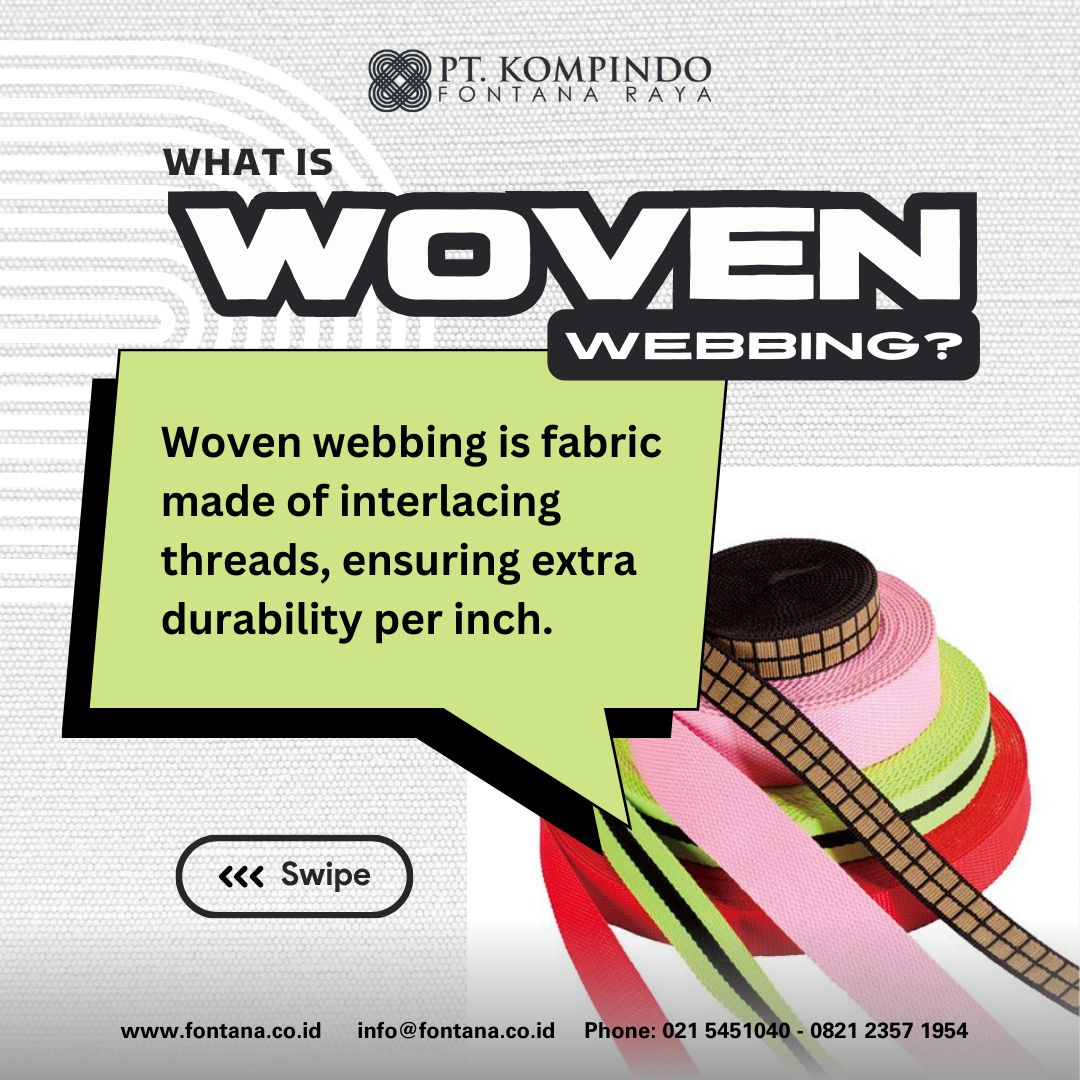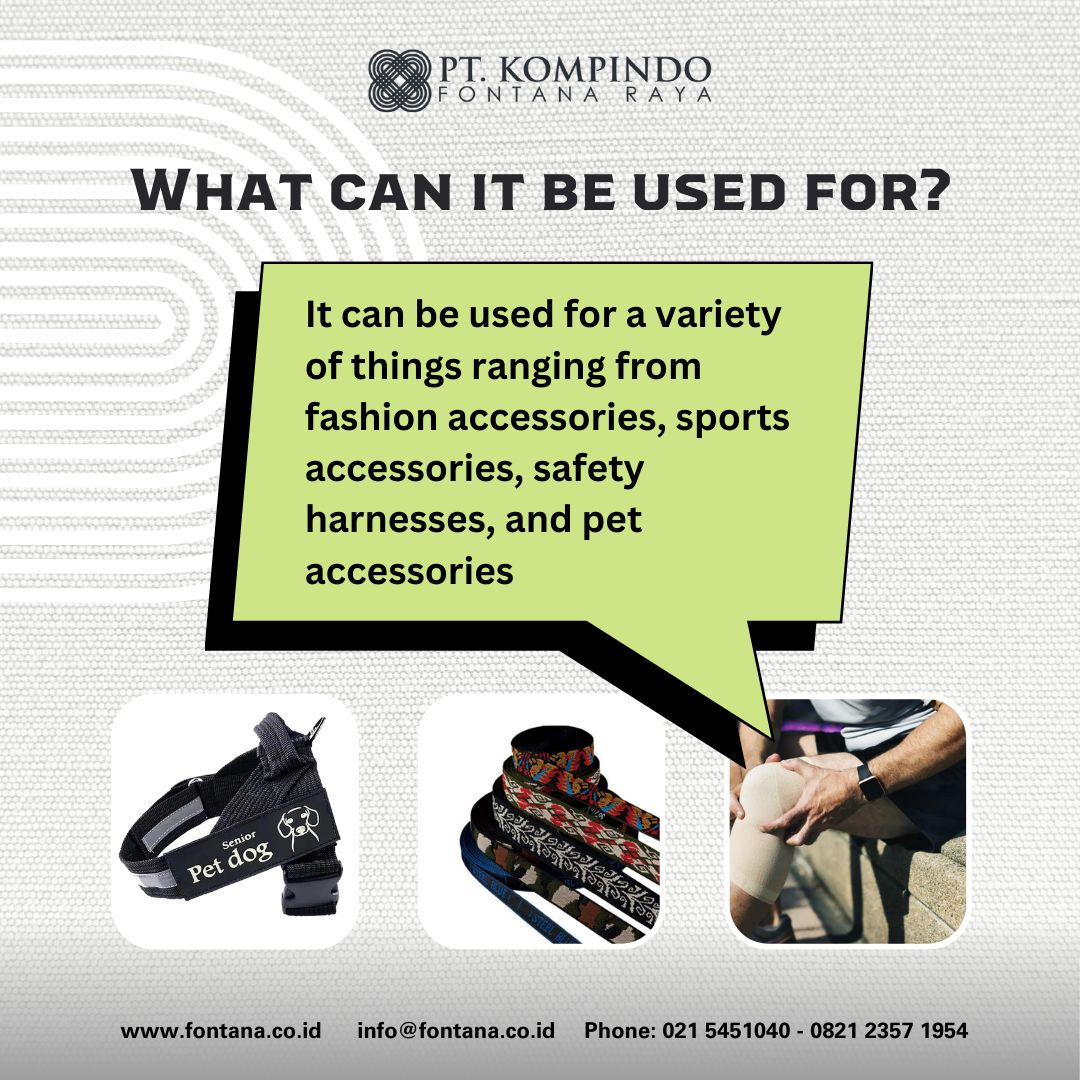Our Products - Woven Webbing
Versatile and Vigorous: The Many Uses of Woven Webbing
Woven webbing is a type of fabric strip or tube that is created through weaving threads or fibres together. It is commonly used in various applications such as straps, belts, harnesses, and other load-bearing structures. Woven webbing can be made from different materials including nylon, polyester, polypropylene, and cotton, each offering specific characteristics such as strength, durability, flexibility, and resistance to various environmental factors.
Exploring the Strengths of Nylon, Polyester, and Polypropylene Webbing: Choosing the Right Material for Your Project
Webbing is a highly strong fabric that can be found in either flat strip or tube form. It serves a variety of purposes, including arts and crafts projects at home.
Polyester webbing, polypropylene webbing, and nylon webbing are widely used in industrial and commercial settings.
Each type of webbing has its own set of advantages and disadvantages. Nylon webbing, for instance, is soft and lustrous, and it comes in a range of neon and basic colours. Polyester webbing, on the other hand, can feature stunning patterns created through sublimation. Polypropylene, also known as “polypro,” combines the desirable qualities of both nylon and polyester.
When it comes to webbing materials, polyester and nylon are two highly prevalent options. These synthetic fabrics are known for their lightweight nature and remarkable strength, boasting similar characteristics. They offer resistance to stretching and are simple to maintain.
However, each material carries its own set of benefits, making the optimal choice contingent upon the specific application, be it climbing or activities in a campsite setting.
Contact us to learn more about our products and see how our high-quality webbing materials can help drive your success.
Comparing Nylon Webbing, Polypropylene Webbing and Polyester Webbing
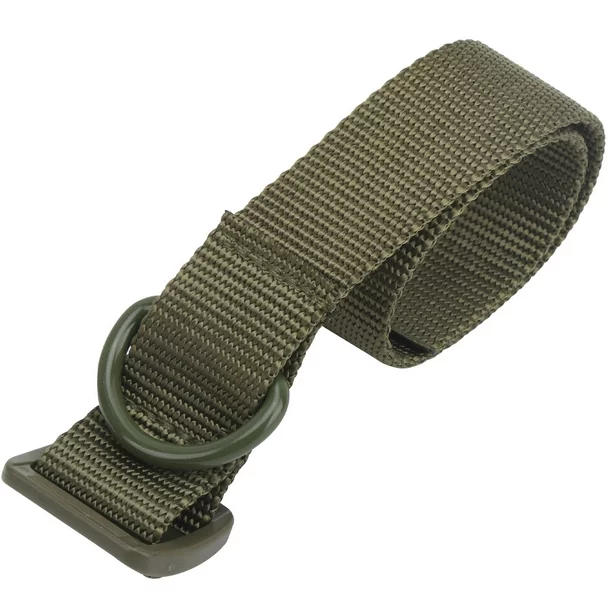
Nylon Webbing
Nylon, available in various types, exhibits exceptional strength. It is a widely used fabric in the outdoor industry, making it readily accessible in an array of colors, styles, and applications. From backpack straps to rock climbing safety equipment, nylon proves to be versatile. Rock climbers favor nylon due to its elasticity and durability. Even after substantial stretching, nylon retains its shape well. Additionally, it offers decent UV resistance, although prolonged exposure to sunlight may result in a strength loss of up to 30% for both nylon 6 and nylon 6,6. However, nylon’s elasticity, which makes it suitable for climbers, makes it less suitable for hammock suspension. Nylon has a tendency to absorb water, adding to its weight beyond surface moisture
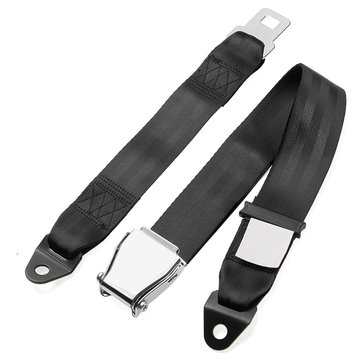
Polyester Webbing
Polyester, a frequently selected webbing material in the outdoor industry, offers a host of advantageous features. It boasts strength, exhibits minimal stretching, remains UV-stable, and does not absorb water. Moreover, polyester webbing is available in a diverse range of widths and strengths. With durability roughly reaching 90% of nylon, it stands out as one of the most UV-stable webbing options. Additionally, polyester demonstrates exceptional resistance to abrasion. These remarkable properties render it an excellent choice for applications such as hammock suspension and backpack straps.
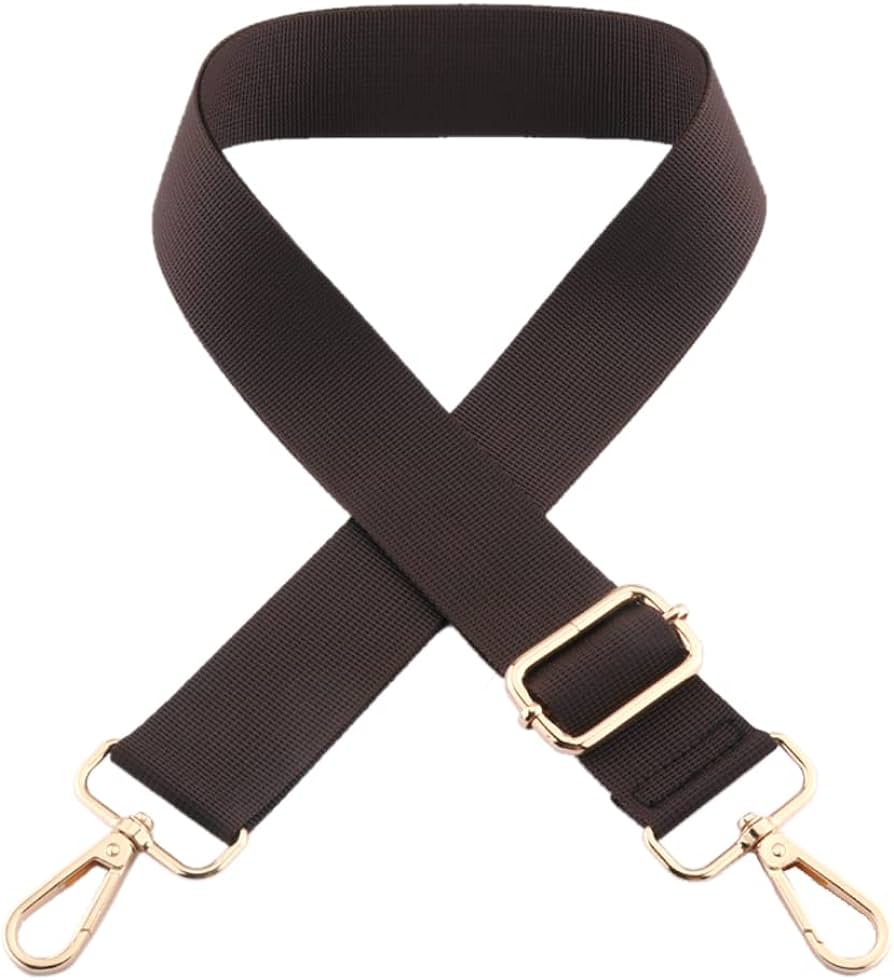
Polypropylene Webbing
Polypropylene stands out as a remarkably lightweight webbing fabric, significantly lighter than other options available. Moreover, it exhibits minimal water absorption, making it ideal for outdoor applications where reducing water weight is crucial. Notably, polypropylene has the advantage of floating on water and being resistant to mildew, which proves advantageous in certain outdoor scenarios. Additionally, it demonstrates excellent resistance against stains and damage caused by substances like grease and oil. However, it’s important to note that polypropylene webbing is comparatively weaker than other fabric types. It possesses a lower melting point and is less resistant to abrasion compared to its nylon and polyester counterparts. Considering its characteristics, polypropylene webbing finds suitable applications in backpack straps and tarp tie-outs.
Ask our expert to give you highlights of these three types of webbing and which one is suitable for your need.

